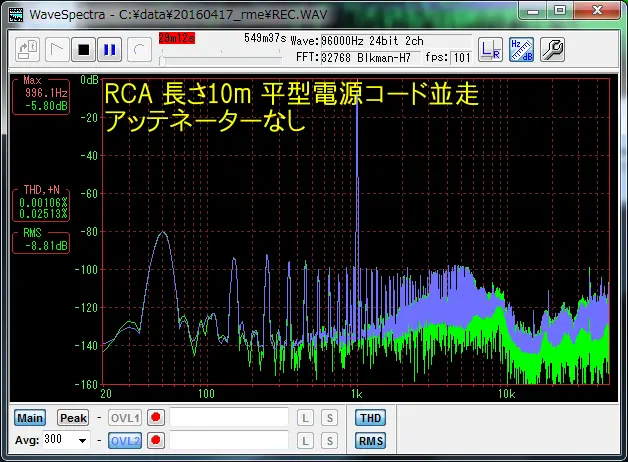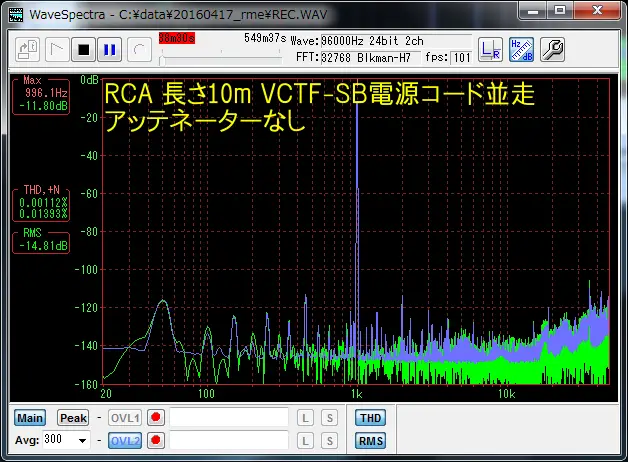In line with Meghan Trainor, subwoofers are all about the bass. Subwoofers amplify the bass sound of your home theater system. But when your subwoofer starts humming instead of producing a clear bass-focused sound, it interferes with your desired bass aesthetic.
RCA cable is usually mentioned among the numerous other possible causes of the hum coming from the subwoofer.
But why does the subwoofer hum RCA cable?
Unbalanced or worn-out RCA cable, ground loop, and EMI or electromagnetic interference are the main culprits behind subwoofer humming. Sometimes the power source can cause this as well. But you can easily solve them using a ground loop isolator, faraday cage, and balanced cables.
Now, you have an idea about the probable reasons and solutions might be. Let’s find out how these humming occurrences usually happen and how you can solve them.
Why Does Subwoofer Hum Caused by RCA Cable?
The RCA cable can make your subwoofer hum if it is improperly grounded or protected. There are a couple of different situations where your subwoofer might hum because of RCA cables.
Due to their low cost, simplicity of use, and general availability, RCA cables are frequently used for audio connections.
A variety of audio devices can be paired with them. As a result, they’re a preferred option to connect a subwoofer to a soundbar or audio system.
The table below will give you an overview of the reasons and possible solutions
| Reasons | Solution |
| Ground Loop | Utilise Line-level ground loop isolator |
| Unbalanced RCA Cables | Utilise Balanced cables, round power cord |
| Interference From Electronic Devices | Relocate the EMI source, Use faraday cage |
| Worn-out RCA cables | Change the cable |
| Different Power Source | Power the amplifier & subwoofer from same outlet |
Got the basic idea about the reasons behind subwoofer hum? Let’s dive in for more details-
Reason 1: Ground Loop
A ground loop is one of the most common sources of subwoofer hum. This can happen if the subwoofer is linked to an improperly grounded audio system. They usually have multiple ground connections.
A loop is created as a result, causing electricity to flow in many directions and produce a hum. It may also occur if the audio system and subwoofer are powered by separate electrical circuits.
Check whether you only notice hum, when the subwoofer is connected to the audio system or when they are powered by the same source. In such cases, a ground loop is most likely to blame for the humming issue.
Solution:
First, install a line-level ground loop isolator on the subwoofer’s line-level feed wire. Most hum issues are usually fixed by doing this. The audio signal is isolated from the ground by this device, thereby closing the loop.
Then, check for any loose connections, and ensure that the audio system and subwoofer are grounded securely. Moreover, if the outlet is wrongly connected, hum will exist regardless of what you do. Purchase an outlet tester for $3 from amazon and check the outlet.
You can try switching to balanced wires if you’re currently utilizing unbalanced ones. Ground loop hum can be avoided by using balanced cables, which have three wires (2 for audio and 1 for ground).
If you don’t mind spending a little more money, you could choose to use a battery-operated subwoofer. This will completely eliminate the possibility of a ground loop. But they are quite costly and usually come at $1000 or more.
Reason 2: Unbalanced RCA Cables
If a balanced cable is improperly insulated or grounded, the subwoofer may hum. Additionally, when an unbalanced RCA cable is connected in parallel to a nearby oval or flat power adapter, the humming level is noticeably higher.
Unbalanced cables can also be affected by EMI or electromagnetic sources. The subwoofer hums as a result of these unbalanced cables when they are close to any EMI source.
Solution:
First, use various power cables, such as balanced cables, to see whether the humming goes away. If it does, the hum was most likely generated by the unbalanced RCA cables.
If the cables are running parallel to the neighboring power cord, maximize the distance between an RCA and a power wire and utilize a shielded round (twisted) power cord. The humming noise will be reduced as a result of this.
Make sure to align the cables perpendicular to the cord. This significantly lowers the humming.
Here is a before and after picture of changing the RCA cable from unbalanced to balanced and using a round power cord.

In this setup, a generic 10m RCA cable was running in parallel with a 10m VCTFK flat power cord.
In the picture below, the setup cables were changed to balanced ones and the power cords were changed to 10m VCTF-SB twisted and shielded cords.

Reason 3: Electromagnetic Interference (EMI)
If placed close to EMI sources like power cables or computer monitors, it will cause the subwoofer to pick up interference and hum.
Even though EMI problems typically affect unbalanced cables, balanced ones are not always safe either. Balanced wires are intended to minimize the probability of hum brought on by ground loops and electromagnetic interference (EMI). But, it is not totally immune to EMI.
Remove EMI sources such as the computer monitors and see whether the humming continues. If the hum stops, the EMI source devices were the cause.
Solution:
To reduce the humming caused by electromagnetic interference (EMI) sources, relocate the EMI source so it is not near the subwoofer. This should initially reduce the humming.
If the situation doesn’t change or is extremely bad, you can also consider utilizing shielded wires or a Faraday cage to block EMI.
Reason 4: Worn-out RCA Cable
If the cables are torn, the connection can become unstable. This allows electromagnetic rays to enter the subwoofer and cause severe humming.
Check whether the interconnecting cables are properly connected or not. Also, look for any wear or tear in them through visual inspection.
Solution:
The best option is to replace the damaged cables. However, there are situations when really tiny cable tears can be repaired with tape. But it’s preferable to get a new cable instead and replace the old one completely.
Reason 5: Different Power Source
Sometimes humming can occur when the amplifier and subwoofer are powered from different outlets. The power output from these outlets might be different which can create this hum.
Solution:
You can also check the voltage output of the sources to rule out the suspicion. And you can put the amplifier and subwoofer in the same power source by using a multiplug.
Now that you are aware of the humming issue, what can you do to prevent this from happening in the future? Let’s see
How to Prevent Subwoofers from Humming?
Here are a few strategies you can take to prevent subwoofer hum:
- For your home entertainment system, consider using RCA cables of high quality. These high-quality cables will ensure clean signal transmission without any possibility of hum.
- Place the subwoofer far from EMI sources such as power supplies, computers, and televisions.
- Some subwoofers contain a phase control switch. These phase switches are adjustable. To avoid humming, make sure the switch is set to its correct settings.
- Make sure the subwoofer’s power supply is reliable and free from obstructions. Additionally, avoid using a power strip or surge protector when connecting your subwoofer to a wall outlet.
- Check the volume and gain settings to make sure they are not excessively high. And periodically inspect your subwoofer to check for any hidden physical damage like a bottomed-out subwoofer.
Frequently Asked Questions (FAQs):
Do RCA cables have an effect on sound?
Yes, high-quality RCA cables can affect the sound. But your setup and level of experience will determine whether you hear the difference or not. With a strong sound system and experienced ears, RCA cables may make a big impact.
Is RCA stereo or mono?
RCA cables are stereo. There are two main methods for transmitting audio and video signals: RCA and HDMI. The RCA connectors are typically used for stereo analog audio or analog video signals. But the audio and video transmitter HDMI cable is mono. It transmits both video and audio via a single cable.
Can hum be produced by capacitors?
Yes, a coupling capacitor or a faulty filter can produce a hum. This is a rare event, though. This typically occurs with an older capacitor. But occasionally a fresh capacitor can also be the culprit.
Read also: RCA Home Theater Projector
Conclusion
That’s the end of the discussion on subwoofer hum RCA cable. The aforementioned reasons are usually behind the humming noise related to RCA cable.
But sometimes the humming could be caused by some other reason completely. And if you have detected the RCA cables as the culprit then don’t hesitate to take the necessary steps to remove the hum as soon as possible.
Several procedures may be required to attain the best results. So be patient and work your way through our guidelines above.
Until next time!
Read also: Cinemark Vs AMC
